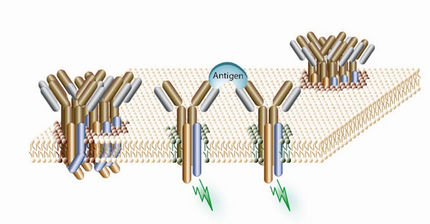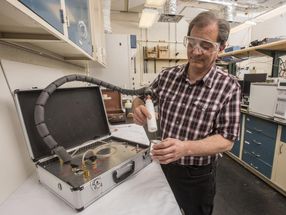Lexicon Pharmaceuticals and Fox Chase Publish Findings on Immune Deficiency
Lexicon Pharmaceuticals, Inc. announced the publication of new findings from a joint research project with scientists at Fox Chase Cancer Center in Philadelphia, PA. Together with David L. Wiest, Ph.D., Lexicon researchers have discovered a novel role for ribosomal protein L22 (Rpl22) in the development of T lymphocytes.
Dr. Wiest and scientists at Lexicon Pharmaceuticals discovered that deletion of the ubiquitously expressed Rpl22 gene resulted in the up-regulation of p53, a key tumor suppressor gene that triggers apoptosis and cell death. Further, it was determined that this up-regulation of p53 was responsible for blocking alpha-beta+ T cell development thereby creating an immune-deficient state.
"The connection between Rpl22 and the p53-mediated apoptosis pathway is very exciting," said Dr. David Wiest, Member, Basic Science Division at Fox Chase Cancer Center. "If research confirms our theories, Rpl22 may prove to be an important biomarker for certain T cell immune deficiency diseases and some types of lymphoid cancers."
Rpl22 is one of several proteins that comprise the large subunit of eukaryotic ribosomes, cellular complexes that are responsible for translating messenger RNA and assembling proteins. Although not-required for translation, Rpl22 may play a role in protein synthesis or macromolecular assembly that is important for some cell types, but not others.
"These findings could help us to further define the pathways involved in T lymphocyte development and regulation," said Dr. Tamas Oravecz, Lexicon's Vice President of Immunology and Oncology. "While Rp122 will likely prove difficult for development as a classic drug target, understanding its role could contribute significantly to its potential as a biomarker for disease."
Original publication: "Ablation of Ribosomal Protein L22 Selectively Impairs alpha-beta T Cell Development by Activation of a p53-Dependent Checkpoint"; Immunity 2007.
Topics
Organizations
Other news from the department science

Get the life science industry in your inbox
From now on, don't miss a thing: Our newsletter for biotechnology, pharma and life sciences brings you up to date every Tuesday and Thursday. The latest industry news, product highlights and innovations - compact and easy to understand in your inbox. Researched by us so you don't have to.




















































